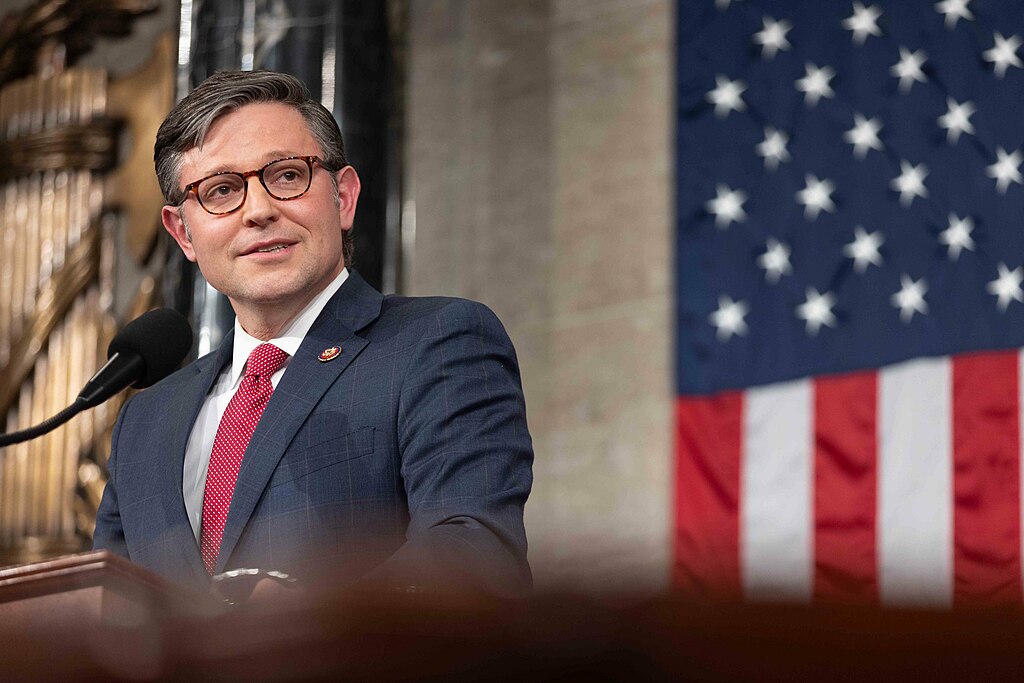House Speaker Mike Johnson has declined President Joe Biden's request for additional funding for Ukraine, stating that he will await guidance from President-elect Donald Trump before proceeding.
Awaiting New Leadership
President Biden recently sought congressional approval for a $24 billion aid package to support Ukraine amid its ongoing conflict with Russia. However, Speaker Johnson emphasized the importance of deferring such decisions to the incoming administration. He remarked, "It is not the place of Joe Biden to make that decision now; we have a newly elected president, and we are going to wait and take the new commander in chief’s direction on all that."
Implications for U.S. Foreign Policy
This decision introduces uncertainty regarding the continuity of U.S. support for Ukraine. The delay in funding could impact Ukraine's defense capabilities and alter the dynamics of its conflict with Russia. Additionally, this move reflects a broader shift in U.S. foreign policy, as the incoming administration may reassess existing commitments and strategies.
Public Reaction
The Speaker's decision has ignited a spectrum of reactions on social media:
-
@PatriotVoice: "Finally, leadership that respects the will of the incoming administration. Biden's overreach needed checking."
-
@DemocracyDefender: "Delaying aid to Ukraine endangers lives and undermines our commitments to allies. This is reckless."
-
@PolicyWonk: "Deferring critical decisions to an incoming president sets a concerning precedent for transitional governance."
-
@GlobalObserver: "U.S. foreign policy requires consistency. This halt in aid sends mixed signals to both allies and adversaries."
-
@Constitutionalist: "The current president retains full authority until the transition. Johnson's stance is constitutionally questionable."
-
@HumanRightsAdvocate: "Ukraine's struggle is a fight for democracy. U.S. support shouldn't be a partisan issue subject to delays."
Historical Context
Historically, U.S. foreign aid decisions during presidential transitions have aimed to maintain stability and uphold international commitments. However, Speaker Johnson's approach indicates a departure from this norm, potentially signaling a reevaluation of foreign aid priorities under the forthcoming administration.



 Russia Signals Openness to U.S. Security Guarantees for Ukraine at Geneva Peace Talks
Russia Signals Openness to U.S. Security Guarantees for Ukraine at Geneva Peace Talks  Pentagon Leaders Monitor U.S. Iran Operation from Mar-a-Lago
Pentagon Leaders Monitor U.S. Iran Operation from Mar-a-Lago  U.S. Deploys Tomahawks, B-2 Bombers, F-35 Jets and AI Tools in Operation Epic Fury Against Iran
U.S. Deploys Tomahawks, B-2 Bombers, F-35 Jets and AI Tools in Operation Epic Fury Against Iran  Iran Supreme Leader Ayatollah Ali Khamenei Killed in Israeli, U.S. Strikes: Reuters
Iran Supreme Leader Ayatollah Ali Khamenei Killed in Israeli, U.S. Strikes: Reuters  U.S. Lawmakers Question Trump’s Iran Strategy After Joint U.S.-Israeli Strikes
U.S. Lawmakers Question Trump’s Iran Strategy After Joint U.S.-Israeli Strikes  Suspected Drone Strike Hits RAF Akrotiri Base in Cyprus, Causing Limited Damage
Suspected Drone Strike Hits RAF Akrotiri Base in Cyprus, Causing Limited Damage  Trump Says U.S. Attacks on Iran Will Continue, Warns of More American Casualties
Trump Says U.S. Attacks on Iran Will Continue, Warns of More American Casualties  Marco Rubio to Brief Congress After U.S.-Israeli Strikes on Iran
Marco Rubio to Brief Congress After U.S.-Israeli Strikes on Iran  Trump Announces U.S. Strikes on Iran Navy as Conflict Escalates
Trump Announces U.S. Strikes on Iran Navy as Conflict Escalates  Zelenskiy Urges Change in Iran After U.S. and Israeli Strikes, Cites Drone Support for Russia
Zelenskiy Urges Change in Iran After U.S. and Israeli Strikes, Cites Drone Support for Russia  Israel Launches Fresh Strikes on Iran After Death of Supreme Leader Ayatollah Khamenei
Israel Launches Fresh Strikes on Iran After Death of Supreme Leader Ayatollah Khamenei  Argentina Tax Reform 2026: President Javier Milei Pushes Lower Taxes and Structural Changes
Argentina Tax Reform 2026: President Javier Milei Pushes Lower Taxes and Structural Changes  Trump to Address Nation as U.S. Launches Strikes in Iran, Axios Reports
Trump to Address Nation as U.S. Launches Strikes in Iran, Axios Reports  Israel Strikes Hezbollah Targets in Lebanon After Missile and Drone Attacks
Israel Strikes Hezbollah Targets in Lebanon After Missile and Drone Attacks  AI is already creeping into election campaigns. NZ’s rules aren’t ready
AI is already creeping into election campaigns. NZ’s rules aren’t ready  Trump Says U.S. Combat Operations in Iran Will Continue Until Objectives Are Met
Trump Says U.S. Combat Operations in Iran Will Continue Until Objectives Are Met 































